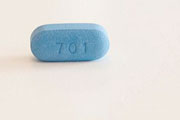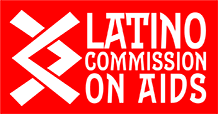|
PrEP (Pre-Exposure Prophylaxis) it is s a daily pill that can help you stay HIV-negative.
The medicines in PrEP can protect you before you might be exposed to HIV.
 How does PrEP stop HIV?
How does PrEP stop HIV?
PrEP contains the same medicines that people with HIV use to stay healthy. If you are exposed to HIV, these medicines can stop the virus from multiplying and spreading throughout your body. PrEP only works if you have enough medicine in your body, so you need to take PrEP every day. Still, PrEP is not 100% effective. But people who took PrEP consistenly were up to 92% less likely to get HIV.
Should I consider taking PrEP?
PrEP is for people who are HIV-negative, have a high risk of being exposed to HIV through sex or drug injection, and are ready to take a daily pill.
Studies have shown that PrEP works for sexually-active gay and bisexual men, heterosexual women and men, and injection drug users, and is also likely to benefit transgender women. PrEP can help protect anyone whose partner has HIV.
 How do I take PrEP?
How do I take PrEP?
PrEP is prescribed by a doctor or nurse. You should take PrEP exactly as prescribed. With PrEP, you take a pill once a day, even on the days you don't have sex or inject drugs. The only medication currently approved for PrEP is Truvada®. PrEP only works if you are HIV-negative and your risk of exposure is high. You may decide to stop taking this medication if your risk changes. But do not stop taking PrEP without first talking to your doctor.
Can I take PrEP only on the days when I have sex?
No. You must take PrEP every day to keep enough medicine in your body to protect you from HIV.
If I take PrEP, do I still have to use condoms?
PrEP does not provide 100% protection against HIV. Condoms provide additional protection against HIV, even while you take PrEP. Condoms also protect against other sexually transmitted infections and prevent unintended pregnancy.
|


